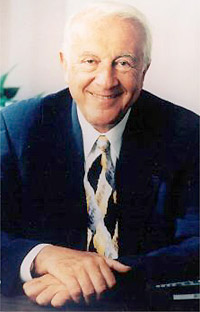Related Research Articles
Dieting is the practice of eating food in a regulated way to decrease, maintain, or increase body weight, or to prevent and treat diseases such as diabetes and obesity. As weight loss depends on calorie intake, different kinds of calorie-reduced diets, such as those emphasising particular macronutrients, have been shown to be no more effective than one another. As weight regain is common, diet success is best predicted by long-term adherence. Regardless, the outcome of a diet can vary widely depending on the individual.

The Atkins diet is a low-carbohydrate fad diet devised by Robert Atkins in the 1970s, marketed with claims that carbohydrate restriction is crucial to weight loss and that the diet offered "a high calorie way to stay thin forever".

Ketosis is a metabolic state characterized by elevated levels of ketone bodies in the blood or urine. Physiological ketosis is a normal response to low glucose availability. In physiological ketosis, ketones in the blood are elevated above baseline levels, but the body's acid–base homeostasis is maintained. This contrasts with ketoacidosis, an uncontrolled production of ketones that occurs in pathologic states and causes a metabolic acidosis, which is a medical emergency. Ketoacidosis is most commonly the result of complete insulin deficiency in type 1 diabetes or late-stage type 2 diabetes. Ketone levels can be measured in blood, urine or breath and are generally between 0.5 and 3.0 millimolar (mM) in physiological ketosis, while ketoacidosis may cause blood concentrations greater than 10 mM.

Robert Coleman Atkins was an American physician and cardiologist, best known for the Atkins Diet, which requires close control of carbohydrate consumption and emphasizes protein and fat as the primary sources of dietary calories in addition to a controlled number of carbohydrates from vegetables.
The Zone diet is a fad diet emphasizing low-carbohydrate consumption. It was created by Barry Sears, an American biochemist.

Low-carbohydrate diets restrict carbohydrate consumption relative to the average diet. Foods high in carbohydrates are limited, and replaced with foods containing a higher percentage of fat and protein, as well as low carbohydrate foods.

The ketogenic diet is a high-fat, adequate-protein, low-carbohydrate dietary therapy that in conventional medicine is used mainly to treat hard-to-control (refractory) epilepsy in children. The diet forces the body to burn fats rather than carbohydrates.

A high-protein diet is a diet in which 20% or more of the total daily calories come from protein. Many high protein diets are high in saturated fat and restrict intake of carbohydrates.

David S. Ludwig is an American endocrinologist and low-carbohydrate diet advocate in Boston, Massachusetts. He is a promoter of functional medicine.

Gary Taubes is an American journalist, writer, and low-carbohydrate / high-fat (LCHF) diet advocate. His central claim is that carbohydrates, especially sugar and high-fructose corn syrup, overstimulate the secretion of insulin, causing the body to store fat in fat cells and the liver, and that it is primarily a high level of dietary carbohydrate consumption that accounts for obesity and other metabolic syndrome conditions. He is the author of Nobel Dreams (1987); Bad Science: The Short Life and Weird Times of Cold Fusion (1993); Good Calories, Bad Calories (2007), titled The Diet Delusion (2008) in the UK and Australia; Why We Get Fat: And What to Do About It (2010); The Case Against Sugar (2016); and The Case for Keto: Rethinking Weight Control and the Science and Practice of Low-Carb/High-Fat Eating (2020). Taubes's work often goes against accepted scientific, governmental, and popular tenets such as that obesity is caused by eating too much and exercising too little and that excessive consumption of fat, especially saturated fat in animal products, leads to cardiovascular disease.
The South Beach Diet is a popular fad diet developed by Arthur Agatston and promoted in his bestselling 2003 book. It emphasizes eating food with a low glycemic index, and categorizes carbohydrates and fats as "good" or "bad". Like other fad diets, it may have elements which are generally recognized as sensible, but it promises benefits not backed by supporting evidence or sound science.
Ronald M. Krauss is an American professor of pediatrics, medical researcher and low-carbohydrate diet advocate. He studies genetic, dietary, and hormonal effects on plasma lipoproteins and coronary disease risk.

Weight management comprises behaviors, techniques, and physiological processes that contribute to a person's ability to attain and maintain a healthy weight. Most weight management techniques encompass long-term lifestyle strategies that promote healthy eating and daily physical activity. Weight management generally includes tracking weight over time and identifying an individual's ideal body weight.
Fred Pescatore is a Manhattan-based author and internist who specializes in nutrition. He is best known as the author of the bestselling children's health book Feed Your Kids Well (1998) and The Hamptons Diet (2004).
Salim Yusuf is an Indian-born Canadian physician, the Marion W. Burke Chair in Cardiovascular Disease at McMaster University Medical School. He is a cardiologist and epidemiologist, and is well known for his cardiology-related clinical trial research. He also formerly served as president of the World Heart Federation. Yusuf has criticized the Dietary Guidelines for Americans and disputes the scientific consensus on dietary sodium and saturated fat intake.

Preventive Nutrition is a branch of nutrition science with the goal of preventing, delaying, and/or reducing the impacts of disease and disease-related complications. It is concerned with a high level of personal well-being, disease prevention, and diagnosis of recurring health problems or symptoms of discomfort which are often precursors to health issues. The overweight and obese population numbers have increased over the last 40 years and numerous chronic diseases are associated with obesity. Preventive nutrition may assist in prolonging the onset of non-communicable diseases and may allow adults to experience more "healthy living years." There are various ways of educating the public about preventive nutrition. Information regarding preventive nutrition is often communicated through public health forums, government programs and policies, or nutritional education. For example, in the United States, preventive nutrition is taught to the public through the use of the food pyramid or MyPlate initiatives.

Andreas Eenfeldt is a Swedish doctor specializing in family medicine. He is an advocate for low-carbohydrate high-fat diets and has criticized the saturated fat guidelines. Eenfeldt was born in 1972 and graduated from medical school at Uppsala University. A few years later, he started DietDoctor.com, a website focused on low-carbohydrate diets. He became a public figure in a heated debate over the merits of the diet.
A cardiac diet also known as a heart healthy diet is a diet focus on reducing sodium, fat and cholesterol intake. The diet concentrates on reducing "foods containing saturated fats and trans fats" and substituting them with "mono and polyunsaturated fats". The diet advocates increasing intake of "complex carbohydrates, soluble fiber and omega 3 fatty acids" and is recommended for people with cardiovascular disease or people looking for a healthier diet.

Protein Power is a high-protein, low carbohydrate fad diet developed by physician Michael R. Eades and his wife Mary Dan Eades.
References
- 1 2 3 "Jeff Volek". ehe.osu.edu. Retrieved 1 March 2023.
- ↑ "Jeff Volek, Ph.D.". hdiac.org. Retrieved 1 March 2023.
- ↑ "Jeff S. Volek, Ph.D., R.D.". u.osu.edu. Retrieved 1 March 2023.
- 1 2 "Jeff S. Volek, PhD., RD., F.A.C.N.". atkins-hcp.com. Retrieved 1 March 2023.
- ↑ "Investigating the Use of Ketogenic Diets in Brain Metastases". clinicaltrials.gov. Retrieved 1 March 2023.
- 1 2 "New Atkins For a New You".penguin.com.au. Retrieved 1 March 2023.
- ↑ "Stop Blaming Saturated Fat". menshealth.com. Retrieved 1 March 2023.
- ↑ "The Art and Science of Low Carbohydrate Living: An Expert Guide to Making the Life-Saving Benefits of Carbohydrate Restriction Sustainable and Enjoyable". redpenreviews.org. Retrieved 30 August 2023.
- ↑ "Men's Health TNT Diet". penguinrandomhouse.com. Retrieved 1 March 2023.